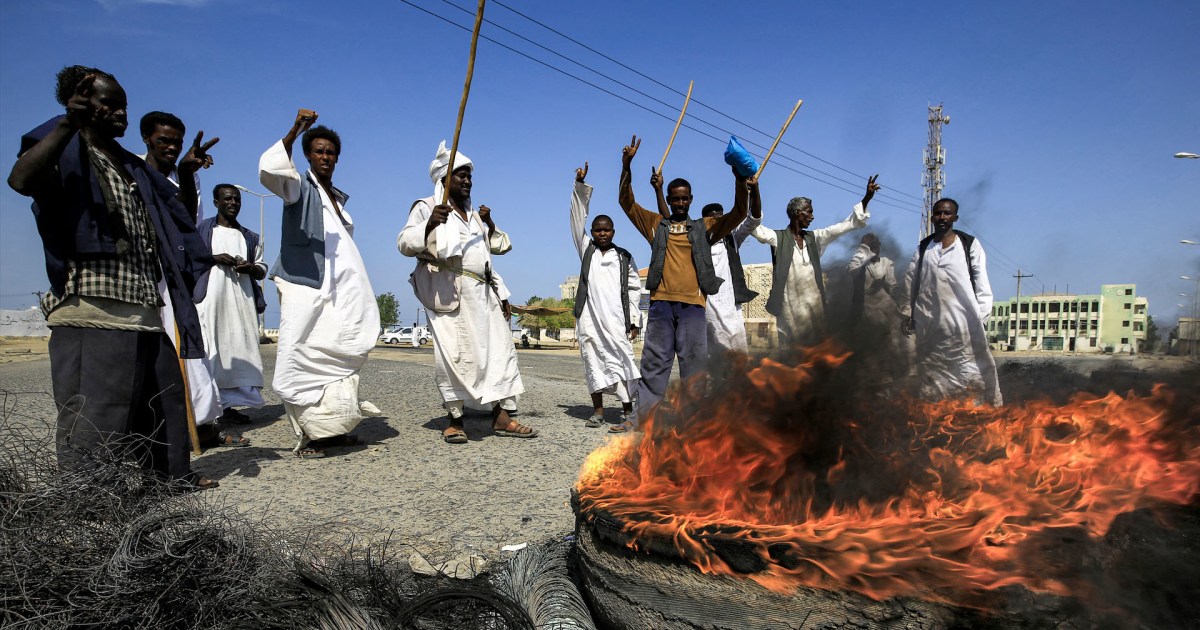The head of the Beja Optical Council and the Independent Counties, Muhammad Al-Amin Turk, called on the Sudanese people to stand with the council to change the government and form a government of competencies, while a number of state governors in Sudan presented an initiative to solve the crisis in eastern Sudan.
Turk expressed the parliament's condemnation of the military coups and its support for the December revolution.
He said that an international committee should be formed to deal with the eastern Sudanese crisis and the eastern track in the Juba negotiations.
Meanwhile, Stephenie Corrie, the political official of the United Nations Mission to support the transitional period in Sudan, said that she is looking forward to a comprehensive solution to the problem of eastern Sudan that takes into account the development and humanitarian needs of its people.
The UN official indicated that, during her current visit to eastern Sudan, she will communicate with all parties and actors in civil society, noting that she began her visit with a meeting with the governor of the Red Sea, who gave her an insight into the situation in his state.
And since last September 17, the Supreme Council of Beja Eyes has closed all ports on the Red Sea and the main road between Khartoum and Port Sudan, in protest against what it says is the marginalization of development suffered by the eastern regions.
The tribal council calls for the re-formation of the transitional government from independent competencies (without party or political affiliations), and the holding of a national conference for eastern issues, resulting in the approval of development projects in it.
Governor's Initiative
In the same context, a number of state governors in Sudan presented an initiative to solve the crisis in eastern Sudan.
The governor of South Kordofan state, Hamid Al-Bashir, said that the governors met in Khartoum with Prime Minister Abdullah Hamdok and members of the Sudanese Sovereignty Council to explain their initiative.
Hamid indicated that the governors are about to move to eastern Sudan, to meet with the head of the Supreme Council of Beja Opticals, to solicit their views.
Hamed stressed that the initiative's goal is to speed up solving the crisis in the east of the country to reach a safe and stable homeland through consensus among all political components.
Umma party initiative
For his part, Al-Wathiq Al-Barir, Secretary-General of the Sudanese National Umma Party participating in the transitional government, called for the dissolution of the Sovereignty Council and the transitional ministers with their military and civilian components and the parties to the peace process, and replacing them with apolitical soldiers, independent civilians and technocrats.
Al-Barir also called for the dismissal of regional governors and governors and the appointment of independent governors in charge, until the elections in January 2024. In addition to the dissolution of all committees and commissions, their re-formation and their assignment to national figures, as stipulated in the constitutional document, until the end of the transitional period.
The Sovereign Council consists of 14 members: 5 soldiers, 6 civilians, and 3 armed movements. It is leading the country during the transitional period, accompanied by a civilian government headed by Abdullah Hamdouk since 2019.
Doubts are rising in Sudan about the commitment of the military component to hand over the presidency of the Sovereignty Council to its civilian counterpart next November, in implementation of the constitutional document on managing the transitional phase, in light of numerous differences between the two components, and developments, most notably security chaos and unrest, especially in the eastern regions.
Since August 21, 2019, Sudan has been living a 53-month transitional period, ending with elections in early 2024, during which power is shared by the army, civilian forces and armed movements that signed a peace agreement with the government on October 3, 2020.
This period began in the wake of the army leadership's dismissal - on April 11, 2019 - of Omar al-Bashir from the presidency (1989-2019), under pressure from popular protests against his rule.

